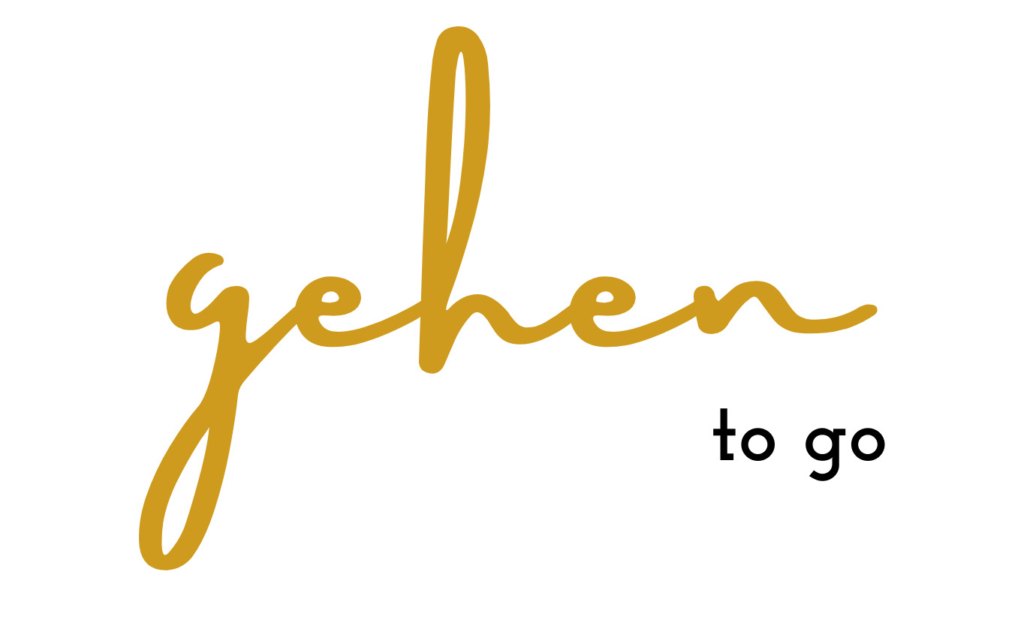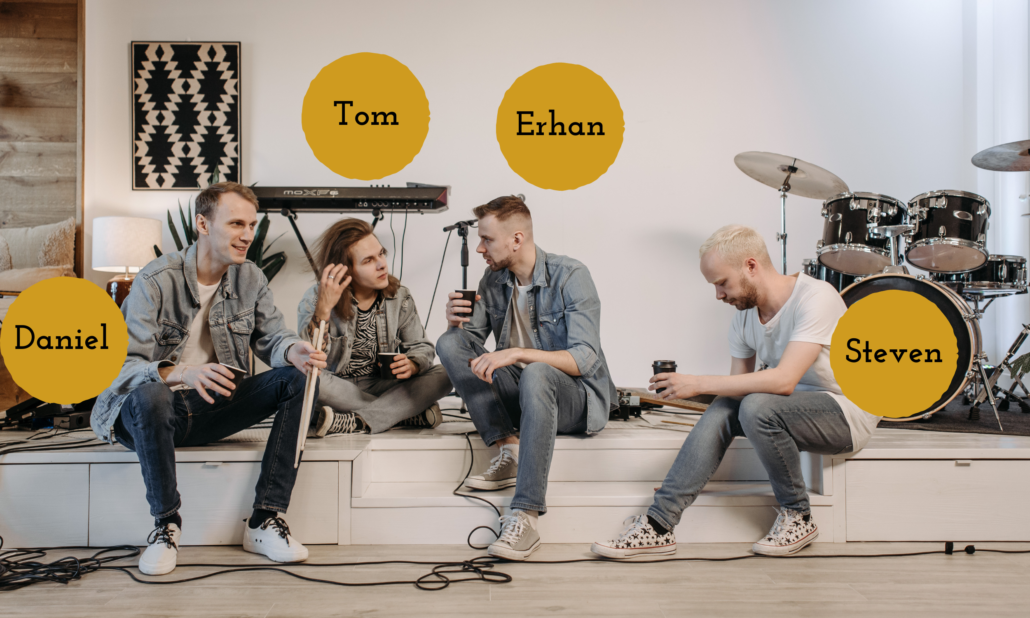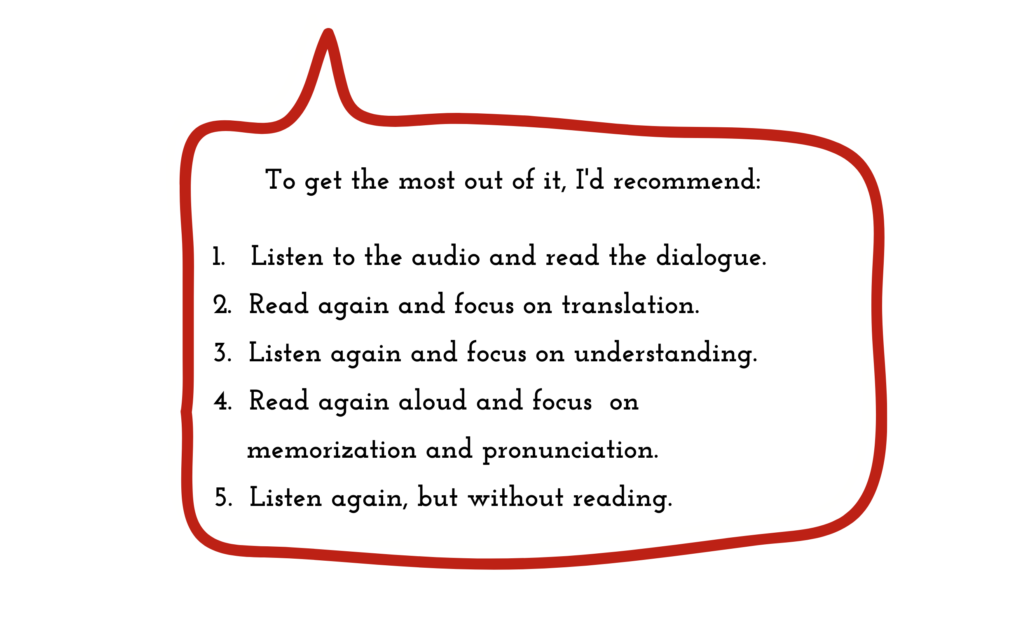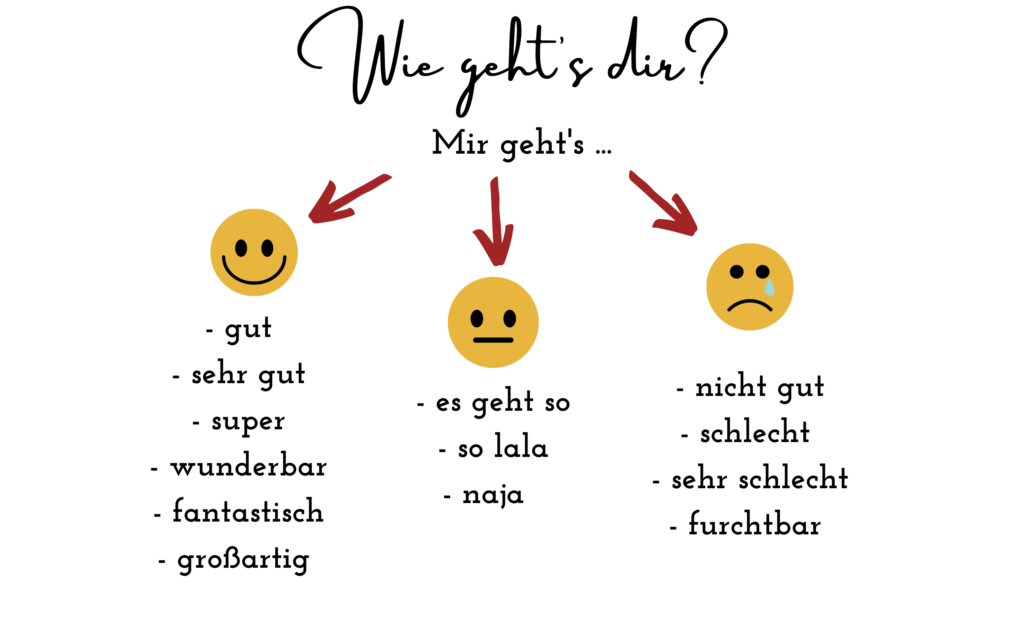Dear Germanee,
wie geht es dir heute? How are you doing today?
Have you read the previous blog post about fahren?
Then welcome, welcome to part 8!
Bist du bereit? Are you ready?
Let’s get to the 7th letter of the German alphabet, which is the beautiful “G”.
We pronounce it like “g” in the English words garden or go.
The g-verb, I wanna introduce you to seems like a simple one, but will turn out as quite complex in its meaning and use.

However, let’s go one step after the other and see how we conjugate the verb gehen:
|
Verb basic form |
Singular |
Plural |
||||
|---|---|---|---|---|---|---|
|
ich I |
du you informal |
er/sie/es he/she/it |
wir we |
ihr you |
sie/Sie they/you formal |
|
|
gehen |
gehe |
gehst |
geht |
gehen |
geht |
gehen |
As you could see, gehen is a regular verb and so only its endings are changing the way you’re already familiar with.
Phew! That’s good news, isn’t it?
The more tricky part is that we use gehen in many different ways.
Literally gehen means to go or to walk.
I think it’ll be best to figure out the other meanings in the following context.

Daniel, Tom, Erhan and Steven are having their own band. They usually meet twice a week for rehearsals. The four of them are a bit tense since they’ll have a concert soon.
| STEVEN | Hey Jungs, was geht? Wie geht’s euch? Ich habe Kaffee für alle. Hi guys, what’s up? How are you doing? I have coffee for everyone. |
| DANIEL | Was geht?!? Danke für den Kaffee, aber eyyy…Steven, du bist schon wieder eine halbe Stunde zu spät zur Bandprobe. Das geht gar nicht, Alter! What’s up?!? Thanks for the coffee, but hey … Steven, you’re again half an hour late for our band rehearsal. That doesn‘t work at all, dude! |
| STEVEN | Es tut mir leid, Leute! Wirklich. Meine Oma ist krank und ihr geht es nicht gut. Geht es jetzt los? Ich bin bereit. I’m sorry, guys! Really. My grandmother is ill and she is not well. Can we start now? I’m ready. |
| ERHAN | Nix geht los. Unser Micro geht nicht. Ich denke, es ist kaputt. Nothing starts. Our mic (doesn’t) work. I think, it’s broken. |
| TOM | Hey, seid mal cool, Jungs! Kein Stress, bitte. Das Micro geht nicht? Na und?! Erhan singt heute ohne Micro und bis zum Konzert nächste Woche ist alles wieder ok. Hey, just be cool, boys! No stress, please! The mic isn’t working? So what?! Erhan sings today without mic and till our concert next week everything (will) be ok. |
| STEVEN | Ich denke, Tom hat Recht. Frieden? I think, Tom is right. Peace? |
| DANIEL | Ok, Frieden. Ok, peace. |
| ERHAN | Ja, Frieden. Und bis nächste Woche geht alles wieder. Übrigens danke für den Kaffee, Steven. Der ist wirklich gut. Yes, peace. And till next week everything (will) work perfectly. By the way thank you for the coffee, Steven. It is really great. |
| STEVEN | Ohh … das freut mich. Der Kaffee ist von meiner Oma. Ohh … my pleasure. The coffee is from my grandmother. |
| DANIEL | Waaaas? Ich denke, sie ist krank?!? Whaaaat? I think, she is ill?!? |
| ERHAN | Pssst … Ruhe, Daniel! Jungs, jetzt machen wir Musik. Und eins… und zwei … und eins, zwei, drei, vier … Pssst … quiet, Daniel! Boys, now we’re making music. And one … and two … and one, two, three, four … |

Dear Germanee, have you seen in how many ways we use our verb gehen?
Wie geht’s? or Wie geht es dir? /
How are you (doing)? or literally How is it going with you?
Was geht? or Was geht bei dir? /
What’s up? or What’s up with you?
Das geht gar nicht! /
That doesn’t work at all! …to criticize someone or something that you’d find unacceptable.
Geht es jetzt los? or Jetzt geht’s los. /
Do we start now? or Now it starts. …often used as an almost euphoric announcement of anticipation.
Bis nächste Woche geht alles wieder. /
Next week everything will work perfectly well. …is used in a sense of something is or will be possible.
Das Micro geht nicht. /
The microphone doesn’t work. …put anything instead of mic that isn’t working.
The question Wie geht’s dir? is a quite useful phrase and
I’d recommend that you just learn it by heart.
In the contrary to English, asking “How are you?” in German isn’t part of our regular way of greeting. Hence, we take that question more literally and might reply to it purely honest.
So, dear Germanee, if you ask a German Wie geht’s dir?, be prepared that the answer can range from:
“Mir geht’s fantastisch” to “so lala” to “nicht gut” or even “schlecht”.
I hope you’ll always be on the smiling side of the following spectrum ;).

Hab einen wunderbaren Tag and please leave me a quick comment below as I’d love to know: Wie geht’s dir?
